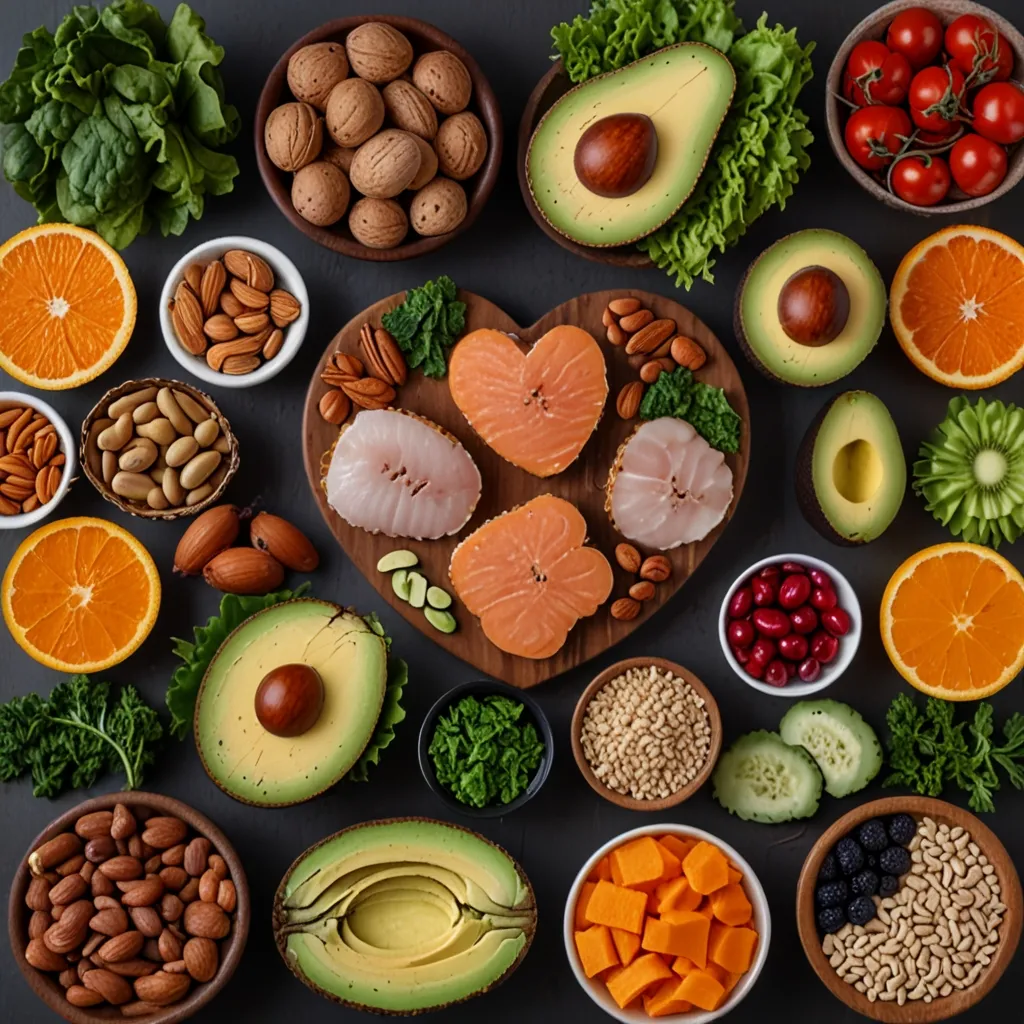When thinking about heart health, what you eat truly makes a difference. Some foods act like superheroes for your heart, helping to reduce your risk of heart disease and keeping your cardiovascular system running smoothly. Let’s get into the best eats for your ticker.
Leafy greens like spinach, kale, and collard greens are fantastic. They’re packed with vitamins, minerals, and antioxidants. Their high vitamin K content helps protect your arteries and aids in proper blood clotting. Plus, these greens have dietary nitrates that can lower blood pressure and enhance the function of your blood vessels. More of these greens in your diet means a lower risk of heart disease.
Whole grains are another great choice. We’re talking about foods like whole wheat, brown rice, oats, rye, barley, buckwheat, and quinoa. These grains are fiber powerhouses because they include the germ, endosperm, and bran. Unlike refined carbs that raise heart disease risk, whole grains help protect against cardiovascular issues, strokes, and metabolic syndrome. Swapping refined grains for whole grains is a win for your heart.
When it comes to fats, fatty fish like salmon, tuna, mackerel, herring, and sardines are top picks. They’re loaded with omega-3 fatty acids that reduce the risk of heart rhythm disorders, lower blood pressure, decrease triglycerides, and curb inflammation. Aim to have these fish at least twice a week for the best benefits.
Avocados are another delicious heart-helper. They’re rich in potassium, which is crucial for maintaining healthy blood pressure. Their monounsaturated fats also help lower cholesterol levels, contributing to overall heart health.
Nuts and seeds, such as almonds, walnuts, and chia seeds, make perfect snacks. They’re packed with plant sterols, fiber, and heart-healthy fats. These nutrients help lower bad LDL cholesterol and guard against inflammation in your arteries. Just a small handful each day can make a big difference.
Legumes, including beans, lentils, chickpeas, and split peas, are fantastic sources of protein and fiber. They can help decrease cholesterol levels and control blood sugar. Soybeans, and foods made from them like tofu and edamame, are packed with heart-healthy minerals and polyunsaturated fats. Put more legumes on your plate for a healthier heart.
Olive oil is a star when it comes to healthy fats. Made from smashed olives, it’s rich in antioxidants that protect blood vessels and lower cholesterol levels. Choosing olive oil over saturated fats like butter can do wonders for heart health.
Fresh fruits, especially berries, give you an antioxidant boost. Berries, apples, oranges, bananas, and mangoes all help prevent oxidative stress and inflammation that could lead to heart disease. Regularly eating blueberries, for instance, is linked to a reduced risk of cardiovascular disease.
Green tea is loaded with polyphenols and catechins that lower cholesterol, triglycerides, and blood pressure. Drinking it regularly can help keep your heart in good standing.
In moderation, red wine can be a heart-friendly choice. It’s full of antioxidants like resveratrol and catechins that may protect artery walls and boost good cholesterol. Just remember—moderation is key.
Sweet potatoes are a better choice than white potatoes. They have a lower glycemic index, meaning they won’t spike your blood sugar as much. They’re also rich in fiber, vitamin A, and lycopene—great for heart health.
Fat-free or low-fat dairy products like milk, cheese, and yogurt provide calcium and protein that help maintain healthy blood pressure and reduce heart disease risk.
Lean meats and poultry, such as chicken and turkey, are excellent for protein without the high saturated fats in red meat. They aid in maintaining a healthy weight and lowering heart disease risk.
Healthy oils are also your friends. Oils high in monounsaturated and polyunsaturated fats—like canola, corn, olive, safflower, sesame, sunflower, and soybean oils—help lower cholesterol levels and reduce heart disease risk when used instead of saturated fats.
Following a Mediterranean-style diet can be super beneficial for your heart. This diet emphasizes whole grains, vegetables, fruits, fish, and healthy oils while limiting meat and saturated fats. It’s a balanced approach that helps maintain a healthy weight and reduces heart disease risk.
Including these foods in your diet can provide wide-ranging benefits for your heart. Remember to watch portion sizes, eat more veggies and fruits, choose whole grains, limit unhealthy fats, and keep alcohol in moderation. Following these simple tips sets you on the path to a healthier heart.






